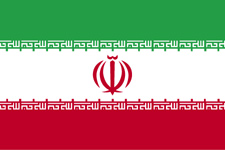In some dictionaries, the word “conservative,” when applied to a country, has referred to a hardline state that is skeptical about attempts to promote tolerance in religious discourse, open societies, and rapprochement with neighboring states. Such a description is often applied to Iran, particularly after the 1979 revolution, though features of a conservative state were always apparent in all elements of the country. Yet with the passage of time, Iran’s policy began to present us with a new interpretation of the concept, especially in regards to its relations with Arab states. Iran used to consider that Shatt al-Arab as part of its territory, one that Iraq had no claim to, and so Iran was in a prolonged dispute with the Saddam Hussein regime over that district. Yet this ended in a tragicomic manner after Khomeini ceased the war against Saddam, describing his [Khomeini’s] acceptance of the decision to accept a ceasefire as akin to drinking poison.
Iran also claimed the Emirate islands that it occupied and annexed to its own provinces. Of course, from time to time, it happens that an Iranian MP, a military figure or a media representative comes out and makes a “slip of the tongue” and says that Bahrain is an Iranian province that should return to the Iranian fold and that Iran will not rest until this is achieved. Then an official would come out and say that this official was not speaking on behalf of the Iranian government, meaning not that what was said was objectionable, but that it was not official policy. Recently, an Iranian scholar stated that Syria is an Iranian province whose importance far exceeds numerous other Iranian provinces and that defending it is a question of life or death. This scholar must view the situation from an abhorrent sectarian perspective that allows killings and encourage foreign intervention using all means, and ways possible, including the assistance of troops from Iran’s Quds Force (the foreign operations wing of the Revolutionary Guard). Today, this force is assisting government military operations in Syria, alongside special troops assisted by the Lebanese Hezbollah’s militias and the Iraqi Badr Force.
All these statements and slips of the tongue are succeeded by military adventures, a practical embodiment of the idea of exporting the revolution. It is no longer possible to view such Iranian statements as mere slips of the tongue or as personal opinions. This was clearly reflected by the statements which Grand Sheikh of al-Azhar, Dr. Ahmed al-Tayed, issued following his meeting with Iranian President Ahmadinejad during his recent visit to Cairo. President Ahmadinejad provoked the sentiments of the Egyptian people when visiting the shrines of Ahl al-Bayt (the family of Prophet Mohamed), something neither Iran nor the followers of the Jafari school of thought recognize. The Jafari school of thought does not recognize the historical fact that the head of al-Hussein (Prophet Mohamed’s grandson) exists in Egypt, while they believe it rests in Damascus. Nor does the Jafari school recognize the presence of the remains of Zaynab bin Ali (Prophet Mohamed’s grand-daughter) in Egypt, but believe her body is buried in Damascus. So, what was Ahmadinejad visiting then? This, however, emphasizes that the purpose of the visit was mere provocation, something the Grand Sheikh of al-Azhar realized, leading him to warn Iran against attempts to intervene in the Arab world or of trying to play with people’s religious feelings and symbols. Ahmadinejad does not seem to have understood the message.
